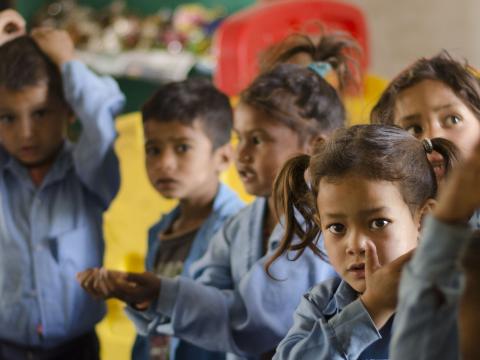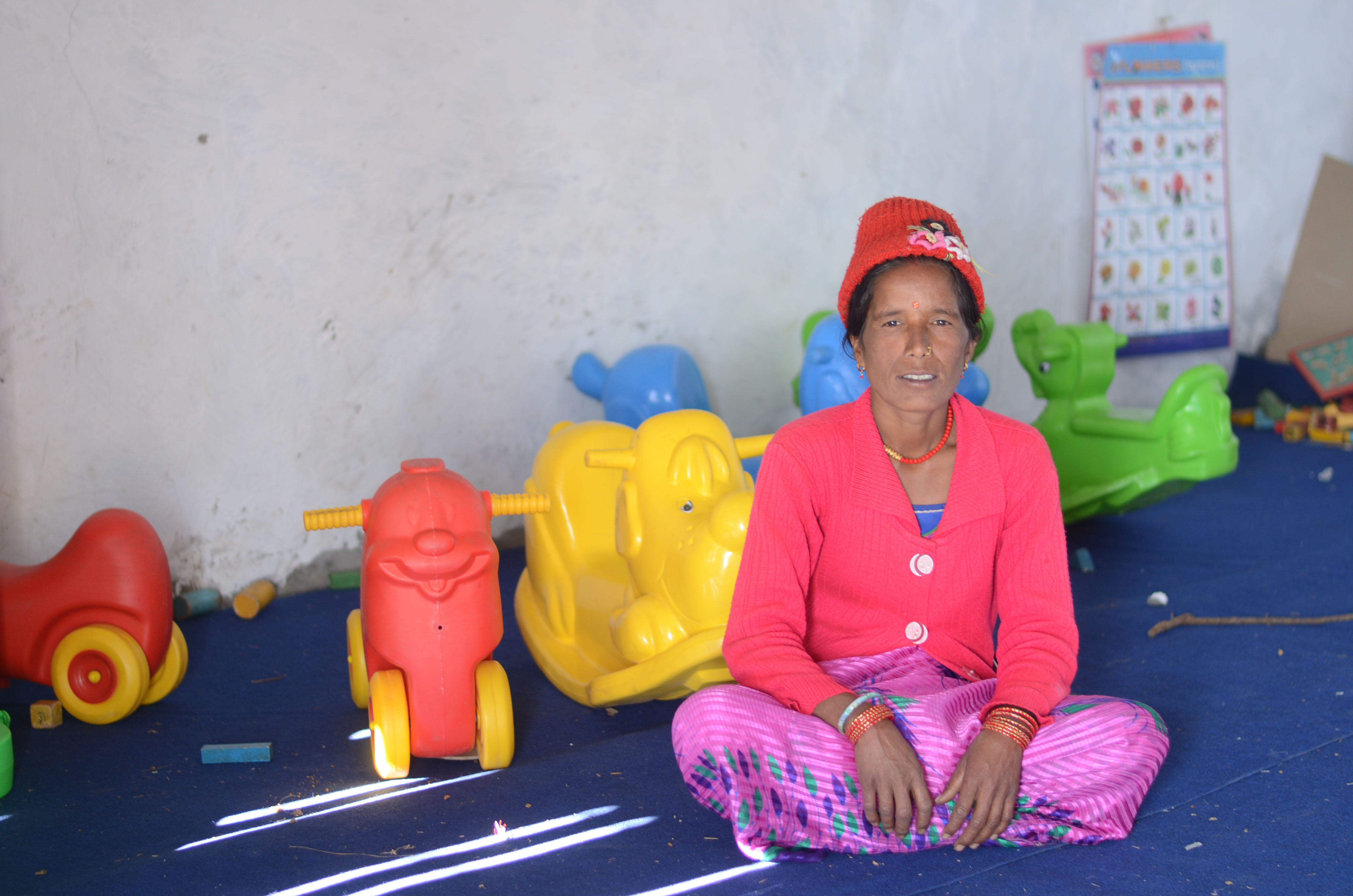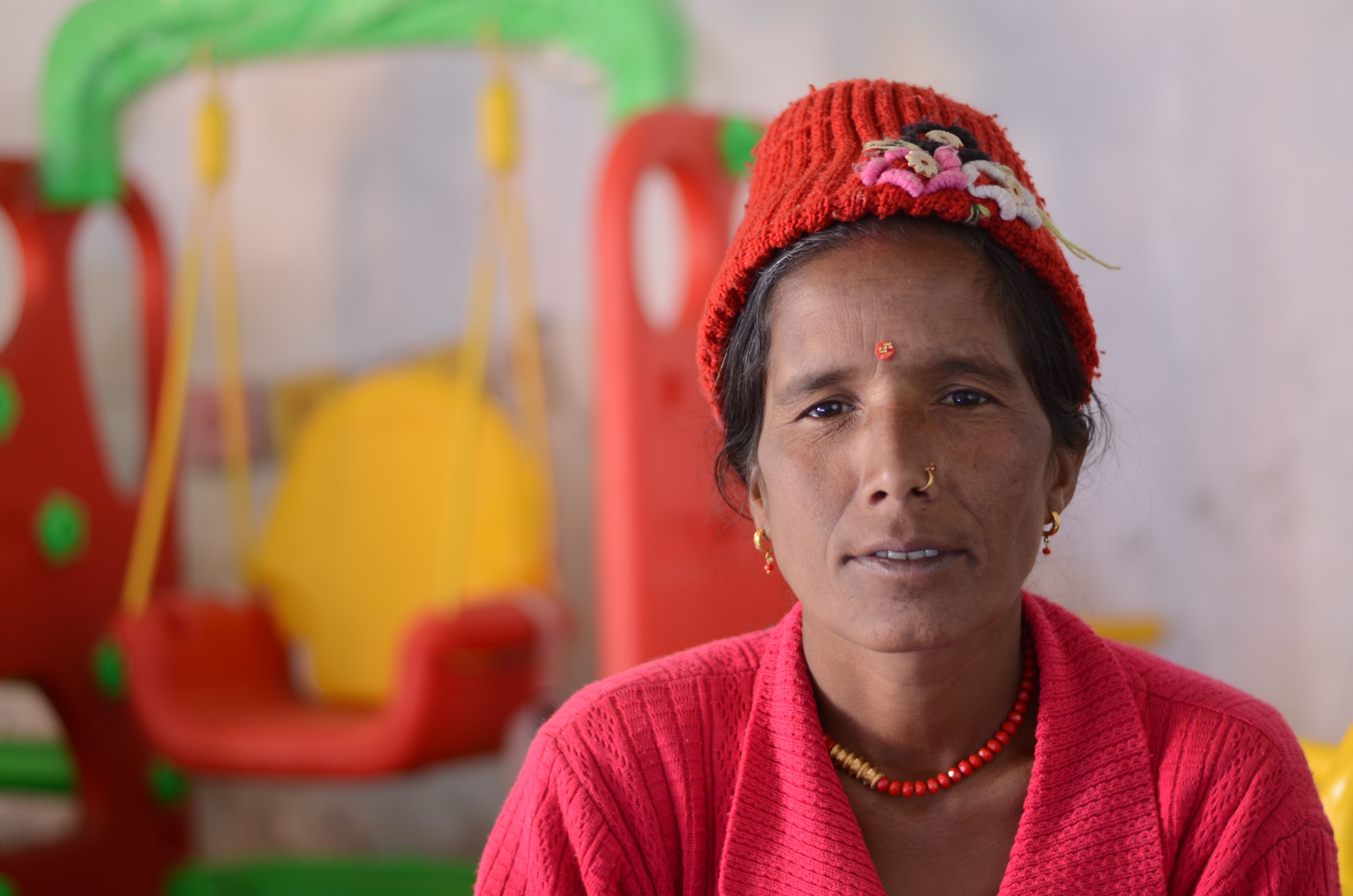Women's efforts for early education

Muna Devi seems to be a popular name in her village. An active campaigner since the ‘Child Health Now’ campaign, Muna Devi is one of the names behind the increased awareness around child health in Banjhkakani village in Doti. But her recent achievement is entirely different.
Recalling the steps toward the achievement, she says, “A meeting had been called to form the overall management committee and the first name that came to everyone’s mind for the president’s post was mine, as I had the required experience and knowledge about World Vision, who were running the project. But the villagers were not happy; they were wondering why I got to take the lead on everything. Ultimately, I was declared the president despite all the opposition. I was a little scared because there was a lot of expectation and if I couldn’t live up to that then there were so many fingers ready to point at me.”
BEGINNING OF THE JOURNEY
When Muna Devi accepted the role, she had not anticipated what was to come. The huge task her committee of eleven had undertaken was the reconstruction of the local Early Childhood Education and Development (ECED) centre. As big a task as it was, she was hoping that with the joint efforts of all the villagers, the responsibility would be shared. But unfortunately, all the men in the village either took off to India for work or withdrew from having any part of it.
Knowing how important a well-built building with improved facilities would be to the small children of her community, Muna Devi decided to go on without the men’s support. “I cannot begin to tell you how difficult it was; it took us a week just to move the construction materials such as cement, bricks from the road to here (pointing at the ECED’s location). My back was hurting a lot by the end of every day because of all the lifting I had had to do,” she says.
CHALLENGES ALONG THE WAY
Muna Devi faced a number of challenges during the construction process. The first contractor left before the completion of the work, which delayed construction by a month. As if that were not bad enough, every day she would receive taunts from the community who would say things like, “Bhale baasney thau ma, pothi baasyo vaney k kaam!” (What is the use when the hen instead of the roosters crows!)
The building was finally completed after eight months. The hard work put in by women leaving their farms had paid off! It then also received gifts in the form of slides, books, colourful educational materials, carpets, cupboards, that turned a bare building into an ECED centre.
In time, many from the community visited the ECED centre and started to appreciate the work put in by the women. They then realised that the ECED centre would enable their children to receive early education, which is crucial for their future.
THE PRESENT PICTURE
Today, the ECED centre comprises a spacious one-roomed building with a slide, a ton of educational materials, and indoor games to stimulate creative learning. 27 children currently attend and, led by a trained facilitator, learn through the creative media of singing, playing, and reciting. Muna Devi believes that the ECED centre will be a good place for the generations of the future to begin their early learning years.
“I will educate my grandchildren here and unlike us, they will learn surrounded by a lot of interesting things like toys. In our time, we did not have that privilege,” she says.
To encourage the education of children aged three to five, World Vision has financially supported 331 ECED centres, to improve the quality of their facilities and the teaching they provide throughout Nepal.

